ISAs
Best Stocks and Shares ISA UK
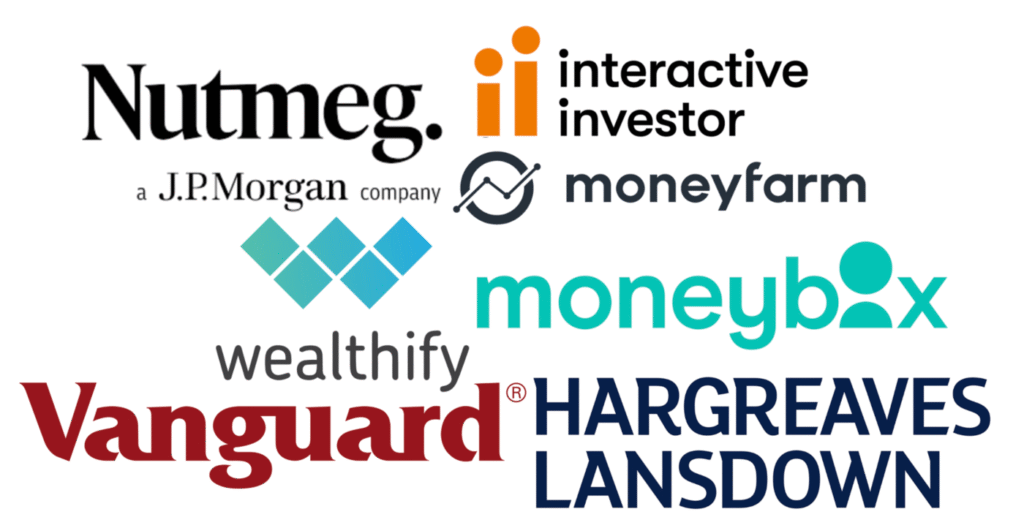
Are you looking to grow your money without paying tax on your gains?
A stocks and shares ISA lets you invest in the stock market with all your returns staying tax-free. Whether you’re eyeing long-term growth or just dipping your toes into investing, finding the best stocks and shares ISA UK is key to making your money work smarter.
But there’s no single best option for everyone. Some ISAs are built for hands-off investors who prefer expert-managed portfolios, while others cater to DIY investors who want full control over their investments.
So, what is the best stocks and shares ISA? It all comes down to your goals, experience level, and how involved you want to be.
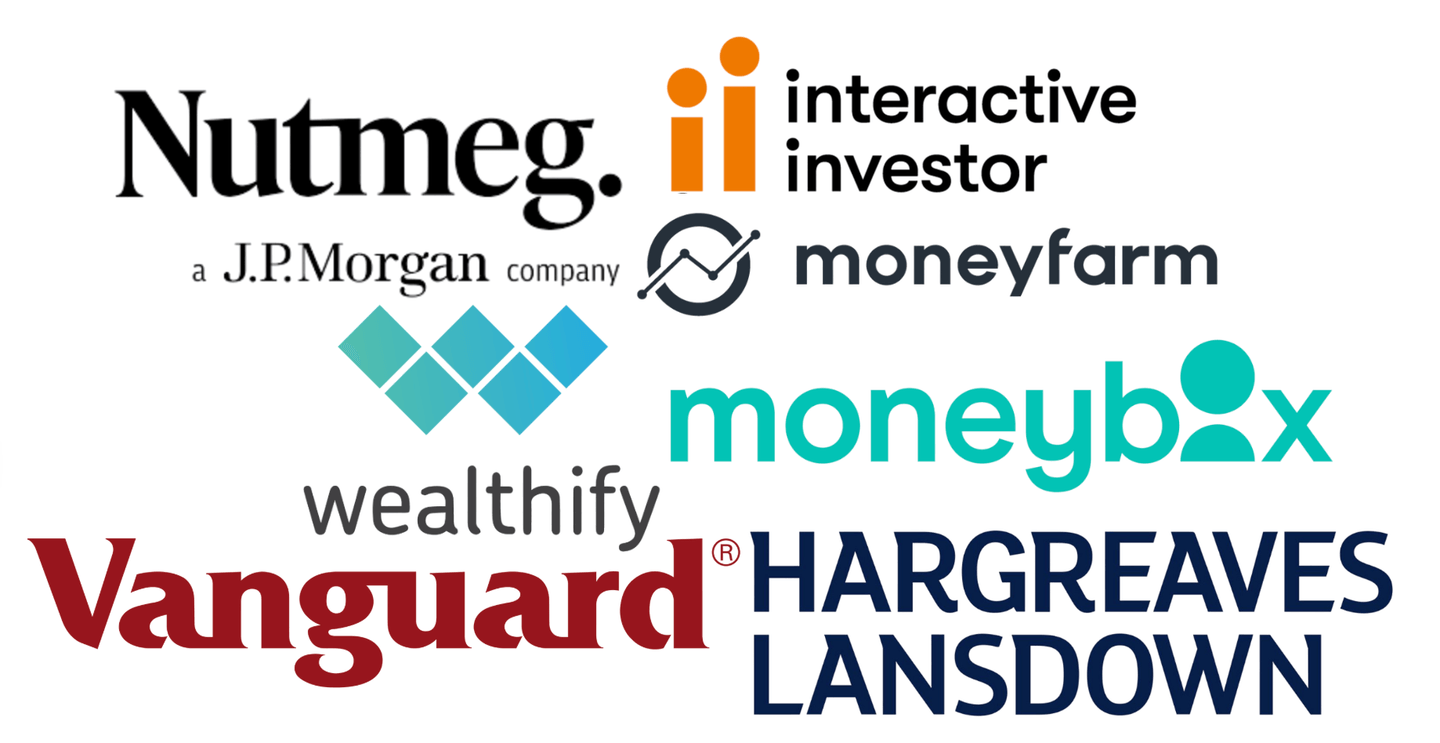
This guide breaks it all down, from the best stocks and shares ISA for beginners to top managed options and everything in between.
What is a stocks and shares ISA?
A stocks and shares ISA is a tax-efficient investment account that allows UK residents to invest up to £20,000 per tax year without paying capital gains tax or income tax on dividends.
Many individuals choose a stocks and shares ISA because tax-free growth adds up fast. If your investments do well, you keep every penny of your returns with no taxman dipping into your profits. Over time, this can make a massive difference.
Stocks and shares ISA vs other ISAs
| Feature | Stocks and shares ISA | Cash ISA | Lifetime ISA | Innovative Finance ISA | |||||
| Best for | Long-term investing in stocks, funds, ETFs, and bonds | Safe, tax-free savings with guaranteed returns | First-time homebuyers & retirement savings | Peer-to-peer lending & alternative investments | |||||
| Tax benefits | No capital gains tax (CGT) or dividend tax | No tax on interest earned | 25% government bonus on contributions (up to £1,000 per year) | No capital gains tax on interest from P2P lending | |||||
| Annual limit | £20,000 | £20,000 | £4,000 (part of £20,000 ISA limit) | £20,000 | |||||
| Risk level | Medium to high (market fluctuations) | Low (your money is secure) | Varies (Cash LISA = no risk, Stocks & Shares LISA = market risk) | High (P2P lending risk—borrowers may default) | |||||
| Returns potential | Can outperform cash savings over time | Low—dependent on interest rates | Moderate to high (depending on investment type) | Can offer higher returns than cash ISAs but carries more risk | |||||
| Withdrawal rules | Anytime, no penalty | Anytime, no penalty | 25% withdrawal penalty if not used for first home or retirement | Limited access; funds are tied up in loans |
| Feature | Stocks and shares ISA | Cash ISA | Lifetime ISA | Innovative Finance ISA | |||||
| Best for | Long-term investing in stocks, funds, ETFs, and bonds | Safe, tax-free savings with guaranteed returns | First-time homebuyers & retirement savings | Peer-to-peer lending & alternative investments | |||||
| Tax benefits | No capital gains tax (CGT) or dividend tax | No tax on interest earned | 25% government bonus on contributions (up to £1,000 per year) | No capital gains tax on interest from P2P lending | |||||
| Annual limit | £20,000 | £20,000 | £4,000 (part of £20,000 ISA limit) | £20,000 | |||||
| Risk level | Medium to high (market fluctuations) | Low (your money is secure) | Varies (Cash LISA = no risk, Stocks & Shares LISA = market risk) | High (P2P lending risk—borrowers may default) | |||||
| Returns potential | Can outperform cash savings over time | Low—dependent on interest rates | Moderate to high (depending on investment type) | Can offer higher returns than cash ISAs but carries more risk | |||||
| Withdrawal rules | Anytime, no penalty | Anytime, no penalty | 25% withdrawal penalty if not used for first home or retirement | Limited access; funds are tied up in loans |
How does a stocks and shares ISA work?
A stocks and shares ISA is a tax-efficient investment account where you can invest in assets like stocks, bonds, and funds. Any gains, dividends, or interest earned are tax-free. You can invest up to £20,000 per tax year.
Types of stocks and shares ISA
There are four main types of stocks and shares ISA:
- Standard Stocks and Shares ISA for individual investments.
- Junior Stocks and Shares ISA (JISA) for under-18s, with a separate allowance.
- Innovative Finance ISA (IFISA) includes peer-to-peer lending alongside stocks and shares.
- Lifetime ISA (LISA) for first-time homebuyers or retirement with a government bonus of 25% (up to £1,000/year).
Pros and Cons
| Pros of Stocks and Shares ISA | Cons of Stocks and Shares ISA | ||
| ✅ Tax-free growth | ❌ Market volatility (especially in the short term) | ||
| ✅ Higher growth potential than a cash ISA | ❌ No government bonus (unlike a LISA) | ||
| ✅ No penalties for withdrawals | |||
| ✅ Diversified investment choices, including stocks, funds, ETFs, and more |
| Pros of Stocks and Shares ISA | Cons of Stocks and Shares ISA |
| ✅ Tax-free growth | ❌ Market volatility (especially in the short term) |
| ✅ Higher growth potential than a cash ISA | ❌ No government bonus (unlike a LISA) |
| ✅ No penalties for withdrawals | |
| ✅ Diversified investment choices, including stocks, funds, ETFs, and more |
With the right provider and strategy, a stocks and shares ISA can be a powerful tool to build long-term wealth.
3 best stocks and shares ISA for beginners
Here are the best managed stocks and shares ISA for beginners, each with pros and cons to help you choose.
Nutmeg
👉 Best all-around managed ISA
Nutmeg has been a go-to choice for managed ISAs for years. It offers fully managed, risk-adjusted portfolios, so you don’t have to lift a finger. Just answer a few questions about your risk appetite, and Nutmeg does the rest: buying, selling, and rebalancing your portfolio as needed. With five investment styles and ten risk levels, you can choose whether you want a conservative, balanced, or high-growth strategy.
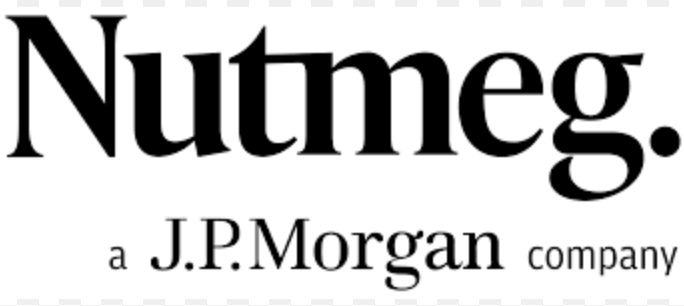
They use exchange-traded funds to invest across different asset classes, industries, and global markets, giving you exposure to a broad mix of investments.
| Pros of Nutmeg | Cons of Nutmeg | ||
| ✅ Fully managed portfolio, perfect for beginners who don’t want to pick investments. | ❌ Fees start from 0.66% per year, but worth it if you want a managed approach. | ||
| ✅ Clear risk levels | ❌ Less control over investments | ||
| ✅ Globally diversified investments | ❌ No ethical-specific portfolio |
| Pros of Nutmeg | Cons of Nutmeg |
| ✅ Fully managed portfolio, perfect for beginners who don’t want to pick investments. | ❌ Fees start from 0.66% per year, but worth it if you want a managed approach. |
| ✅ Clear risk levels | ❌ Less control over investments |
| ✅ Globally diversified investments | ❌ No ethical-specific portfolio |
Wealthify
👉 Best for ethical and flexible investing
Wealthify works similarly to Nutmeg: you answer a few questions about your investment goals, and their team builds and manages your portfolio. However, Wealthify stands out because of two key features.
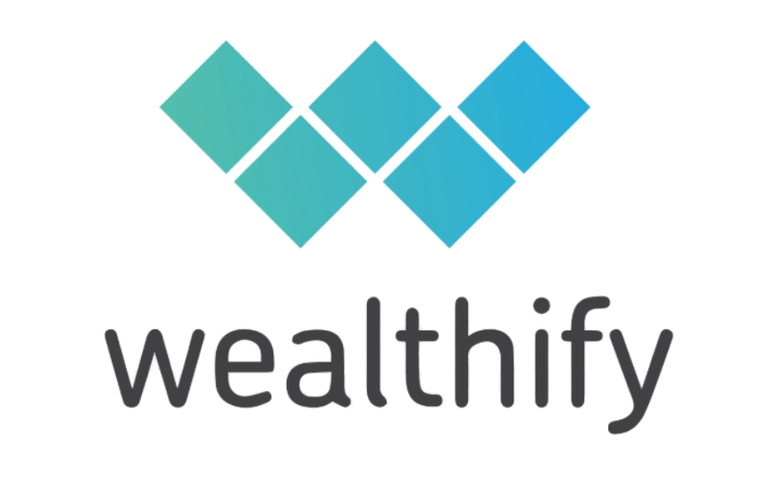
Firstly, Wealthify offers a flexible stocks and shares ISA, meaning you can withdraw money and put it back within the same tax year without using up your ISA allowance.
Secondly, if you want to invest in companies that prioritise sustainability, social responsibility, and environmental impact, Wealthify’s ethical ISA is a solid choice.
You can also choose your investment style, ranging from cautious to adventurous, depending on your risk appetite.
| Pros of Wealthify | Cons of Wealthify | ||
| ✅ Flexible withdrawals | ❌ Fees are higher, starting from 0.76% per year | ||
| ✅ Ethical investing | ❌ Fewer investment options | ||
| ✅ Wide range of risk levels |
| Pros of Wealthify | Cons of Wealthify |
| ✅ Flexible withdrawals | ❌ Fees are higher, starting from 0.76% per year |
| ✅ Ethical investing | ❌ Fewer investment options |
| ✅ Wide range of risk levels |
Moneyfarm
👉 Best hybrid platform for beginners
Moneyfarm is best for investors who want a managed ISA now but might try DIY investing later. The hybrid platform allows you to buy either a fully managed ISA or a DIY ISA where you can pick your own assets.

This makes Moneyfarm the best of both worlds: perfect for beginners who want to start with a managed ISA but might want to take control later. Their platform is designed to be user-friendly, so when you’re ready to explore DIY investing, you won’t feel lost.
| Pros of Moneyfarm | Cons of Moneyfarm | ||
| ✅ Hybrid platform with both managed and DIY options | ❌ Higher fees starting from 0.96%, but fees drop as your investment size grows | ||
| ✅ Diverse investment choices | ❌ DIY options may overwhelm some beginners | ||
| ✅ Caters to both beginners and more experienced investors |
| Pros of Moneyfarm | Cons of Moneyfarm |
| ✅ Hybrid platform with both managed and DIY options | ❌ Higher fees starting from 0.96%, but fees drop as your investment size grows |
| ✅ Diverse investment choices | ❌ DIY options may overwhelm some beginners |
| ✅ Caters to both beginners and more experienced investors |
Best Stocks and Shares ISA Providers in the UK
Now that we’ve covered different investment styles, let’s compare the best stocks and shares ISA providers overall. Some platforms shine for their low fees, others for their investment choices, and some for user experience.
Here’s a breakdown of the top stocks and shares ISA providers UK in 2025.
Vanguard
👉 Best stocks and shares ISA provider for low fees and long-term passive investing
Vanguard is a favourite among long-term investors thanks to its ultra-low fees and focus on passive investing. Vanguard primarily offers index funds and ETFs. So, you get access to a wide range of diversified, low-cost funds, perfect for those who believe in slow and steady market growth.
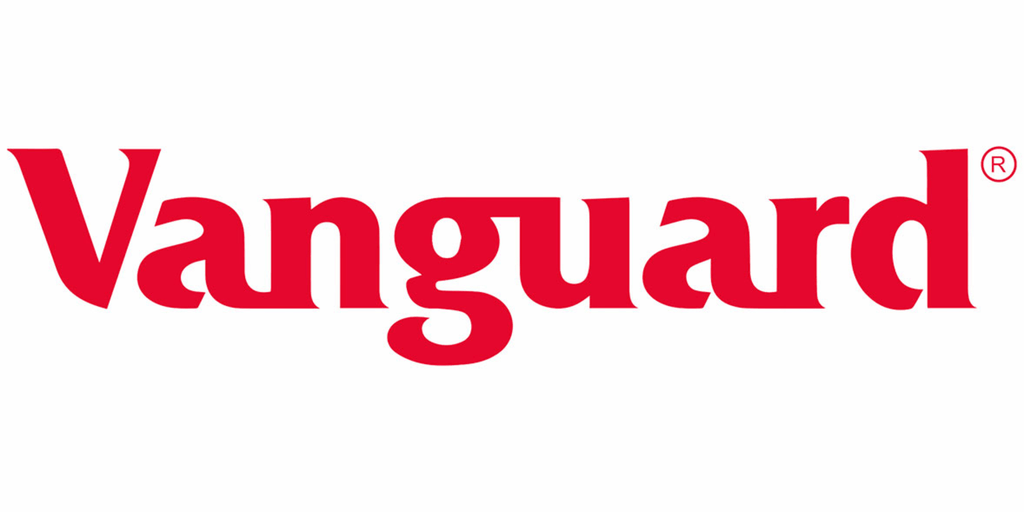
Vanguard is all about simplicity and affordability. The 0.15% account fee is one of the lowest in the UK, making it ideal for investors looking to maximise long-term returns.
If you’re happy to invest in index funds and let them grow over time, Vanguard is an excellent choice. We also recommend taking a look at our Vanguard review to explore all its features in detail and see the main comparisons, such as Vanguard vs Hargreaves Lansdown."
| Pros of Vanguard | Cons of Vanguard | ||
| ✅ One of the cheapest ISA providers in the UK | ❌ Basic platform, not the best for hands-on traders | ||
| ✅ Over 85 funds to choose from | |||
| ✅ Either self-managed or managed ISA |
| Pros of Vanguard | Cons of Vanguard |
| ✅ One of the cheapest ISA providers in the UK | ❌ Basic platform, not the best for hands-on traders |
| ✅ Over 85 funds to choose from | |
| ✅ Either self-managed or managed ISA |
Hargreaves Lansdown
👉 Best for fund variety and research tools
If you´re wondering, is Hargreaves Lansdown good, it is one of the largest and most established investment platforms in the UK, offering one of the widest selections of funds, stocks, ETFs, and investment tools. If you’re looking for high-quality research and expert guidance, this is one of the best stocks and shares ISA providers out there.
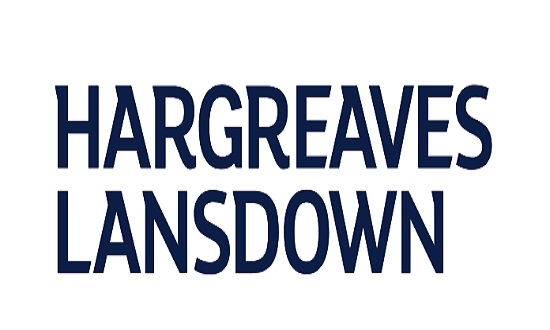
| Pros of Hargreaves Lansdown | Cons of Hargreaves Lansdown | ||
| ✅ Huge investment choice with funds, stocks, ETFs, bonds, investment trusts | ❌ Higher fees than competitors, 0.45% can add up for large portfolios | ||
| ✅ Ready-made ISA also available | ❌ Not ideal for small investors | ||
| ✅ High-quality research and expert insights | ❌ No flat-fee model, so larger investors may prefer Interactive Investor | ||
| ✅ Excellent customer support |
| Pros of Hargreaves Lansdown | Cons of Hargreaves Lansdown |
| ✅ Huge investment choice with funds, stocks, ETFs, bonds, investment trusts | ❌ Higher fees than competitors, 0.45% can add up for large portfolios |
| ✅ Ready-made ISA also available | ❌ Not ideal for small investors |
| ✅ High-quality research and expert insights | ❌ No flat-fee model, so larger investors may prefer Interactive Investor |
| ✅ Excellent customer support |
Interactive Investor
👉 Best for active traders and large portfolios
Interactive Investor takes a different approach to fees. Instead of charging a percentage of your portfolio, it uses a flat monthly fee model. If you invest up to £50,000, the monthly fee is £4.99, or £11.99 for any value. This can be a huge cost-saver for investors with larger portfolios, since your costs don’t increase as your investments grow.
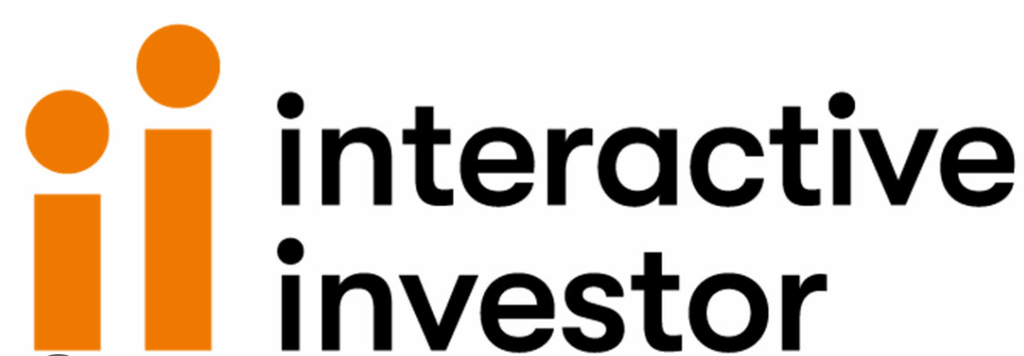
Interactive Investor offers full access to stocks, ETFs, investment trusts, gilts, bonds, and funds, making it an excellent choice for those who want complete control over their portfolio. If you like to trade frequently, this platform is a solid pick.
| Pros of Interactive Investor | Cons of Interactive Investor | ||
| ✅ Flat-fee pricing, which is cost-effective for larger portfolios | ❌ Geared toward experienced investors | ||
| ✅ Huge investment selection of stocks, ETFs, funds, bonds, investment trusts | ❌ If you’re investing small amounts, other platforms may be cheaper | ||
| ✅ Advanced trading tools for investors who want to go beyond passive investing | |||
| ✅ Great for frequent traders lower costs per trade than percentage-based fee platforms |
| Pros of Interactive Investor | Cons of Interactive Investor |
| ✅ Flat-fee pricing, which is cost-effective for larger portfolios | ❌ Geared toward experienced investors |
| ✅ Huge investment selection of stocks, ETFs, funds, bonds, investment trusts | ❌ If you’re investing small amounts, other platforms may be cheaper |
| ✅ Advanced trading tools for investors who want to go beyond passive investing | |
| ✅ Great for frequent traders lower costs per trade than percentage-based fee platforms |
Moneybox
👉 Great for beginner investors and convenient micro-investing
Moneybox stands out as an app-based platform making investing accessible and straightforward, particularly for beginners. It gained popularity for its "round-up" feature, allowing users to invest spare change from everyday purchases. Moneybox offers a range of savings and investment products, including Stocks and Shares ISAs, Lifetime ISAs, and Pensions.
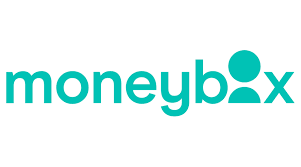
The platform provides a curated selection of ready-made portfolios (Cautious, Balanced, Adventurous) based on risk appetite, as well as a limited range of funds and US stocks. While not the cheapest for larger portfolios due to its £1 monthly subscription fee plus a 0.45% platform fee (though the monthly fee is waived for the first three months), it's highly praised for its ease of use and educational content for novice investors.
| Pros of Moneybox | Cons of Moneybox | ||
| ✅ Excellent for beginners: Intuitive app, simple investment options, and educational resources. | ❌ Can be expensive for larger portfolios: The £1 monthly fee plus 0.45% platform fee can add up for substantial investments. | ||
| ✅ Convenient micro-investing: "Round-up" feature makes saving and investing effortless. | ❌ Limited investment choice: Not ideal for experienced investors seeking a wide range of individual stocks or a highly customisable portfolio. | ||
| ✅ FSCS protected: Investments are covered up to £85,000 by the Financial Services Compensation Scheme. | ❌ App-only platform: No desktop access, which might not suit all users. | ||
| ✅ Good range of account types: Offers ISAs, LISAs, Pensions, and General Investment Accounts. |
| Pros of Moneybox | Cons of Moneybox |
| ✅ Excellent for beginners: Intuitive app, simple investment options, and educational resources. | ❌ Can be expensive for larger portfolios: The £1 monthly fee plus 0.45% platform fee can add up for substantial investments. |
| ✅ Convenient micro-investing: "Round-up" feature makes saving and investing effortless. | ❌ Limited investment choice: Not ideal for experienced investors seeking a wide range of individual stocks or a highly customisable portfolio. |
| ✅ FSCS protected: Investments are covered up to £85,000 by the Financial Services Compensation Scheme. | ❌ App-only platform: No desktop access, which might not suit all users. |
| ✅ Good range of account types: Offers ISAs, LISAs, Pensions, and General Investment Accounts. |
👉Read more here: Is Moneybox safe?
How to choose the best stocks and shares ISA in the UK
With dozens of providers out there, how do you separate the best from the rest? The key is knowing what to look for.
Fees
Not all ISAs are created equal when it comes to fees. Some charge platform fees (a percentage of your portfolio), while others have trading fees every time you buy or sell. Over time, these can eat into your returns.
For example, Vanguard keeps things cheap with a 0.15% platform fee, while Hargreaves Lansdown charges up to 0.45%, which can add up if you’re investing a lot.
Investment choice
Some platforms give you full control to buy individual stocks and funds, while others offer pre-built portfolios for easy investing.
If you want to DIY, go for platforms like Interactive Investor or Hargreaves Lansdown, which offer a massive range of stocks and ETFs.
If you prefer an expert to handle it, a managed stocks and shares ISA like Nutmeg or Wealthify might be a better fit.
Risk level
Not all ISAs suit the same risk appetite. Some are tailored for steady, lower-risk growth, while others aim for high-reward, high-risk opportunities.
If you’re a cautious investor, look for ISAs offering low-risk diversified funds.
If you want bigger growth potential, check out ISAs that allow individual stock picking.
User-friendliness
A smooth, user-friendly platform makes investing so much easier, especially if you’re just starting out. The best ISAs come with:
- Intuitive websites & mobile apps
- Helpful customer support
- Clear insights into your investments
Minimum deposit
Some ISAs let you start with as little as £1, while others require a lump sum of £500 or more. If you’re just testing the waters, look for low-entry options like Nutmeg.
Final verdict
A stocks and shares ISA is one of the most powerful investment tools in the UK, giving you tax-free growth and access to a range of investment opportunities. But not all ISAs are created equal and picking the right one can make or break your investing experience.
If your goal is long-term tax-free wealth growth, a stocks and shares ISA is one of the best investment tools available in the UK. With no tax on gains or dividends, it gives you more room to grow your investments compared to taxable brokerage accounts.
So, which is the best stocks and shares ISA for you?
The one that fits your investment style, risk tolerance, and long-term goals. The sooner you start, the more time your money has to grow tax-free, so don’t wait too long to pick your winner.
FAQs
Who should invest in a stocks and shares ISA?
Investors with a medium- to long-term horizon (5+ years), a higher risk appetite, and a desire for tax-efficient growth. Stocks and shares ISAs are not suitable for those needing short-term access to cash or who are risk-averse.
What happens if I withdraw money from a stocks and shares ISA?
You can withdraw at any time, but if your ISA isn’t flexible, you lose that portion of your annual allowance.
Say you invest £5,000 and withdraw £2,000. If your ISA isn’t flexible, you can’t put that £2,000 back in without using more of your £20,000 yearly limit.
If you think you might need access to your funds, look for a flexible stocks and shares ISA that allows re-deposits.
Can I lose money in a stocks and shares ISA?
Yes. Unlike a cash ISA, which guarantees your savings, a stocks and shares ISA is an investment account. This means your money is subject to market fluctuations. Prices go up and down, and while history shows that markets tend to grow over time, there are no guarantees.
Investing for the long term (at least 5+ years) reduces risk and gives your portfolio time to recover from short-term dips.
How much can I invest in an ISA per year?
The ISA allowance is £20,000. You can split this between different types of ISAs (e.g., a cash ISA and a stocks and shares ISA, or even a lifetime ISA), but your total contributions cannot exceed £20,000